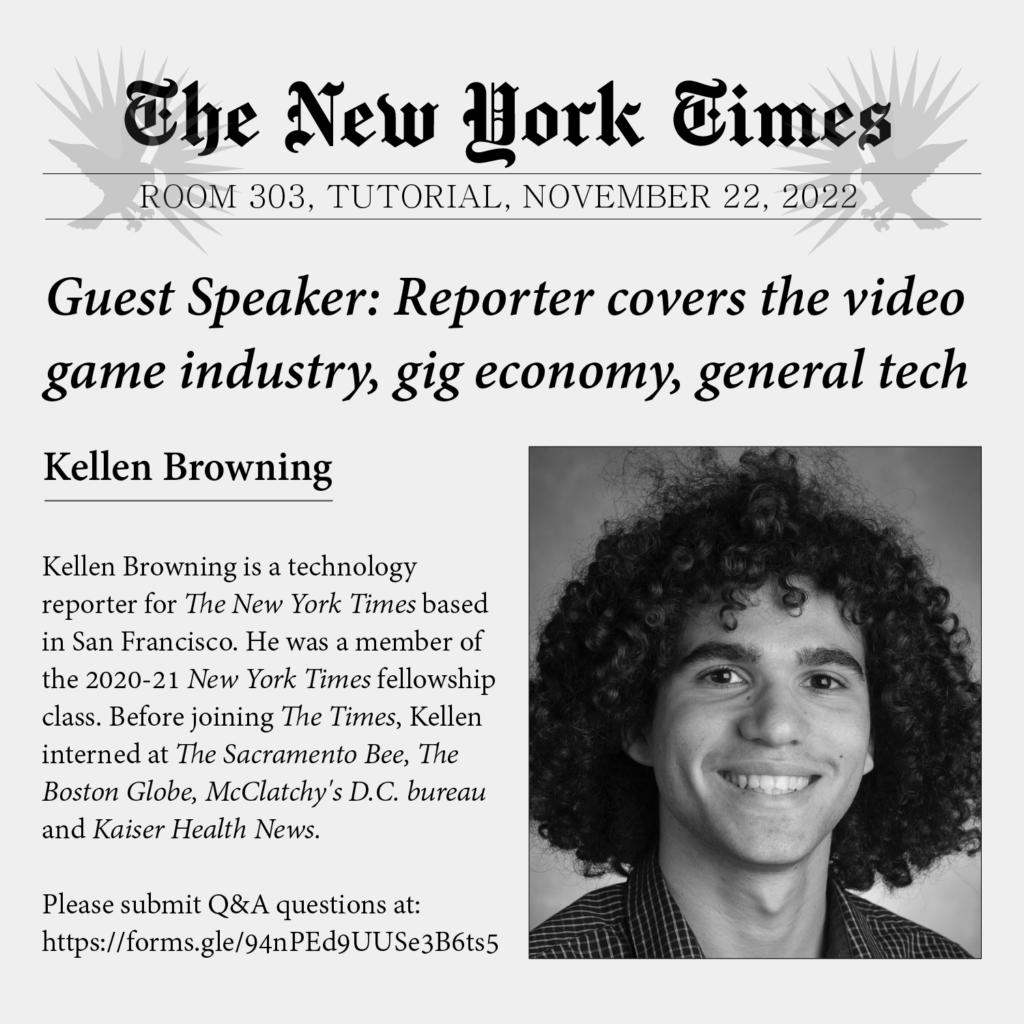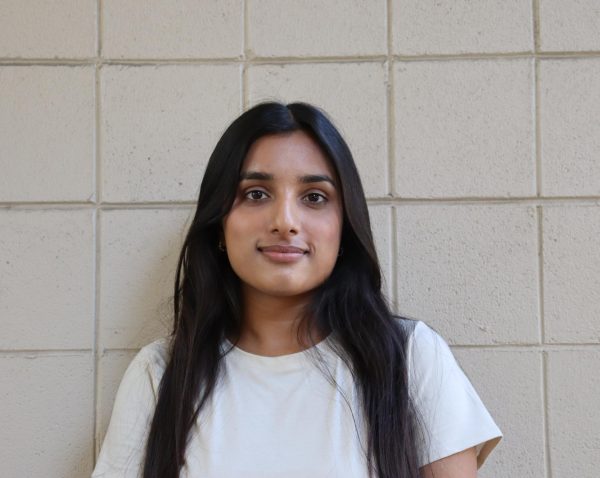Thirty students sat in the journalism room during tutorial on Nov. 22, eagerly awaiting the introduction of guest speaker Kellen Browning, a New York Times technology reporter based in San Francisco. Browning spoke to students during both tutorial and the third-period newspaper class. The tutorial section of the event was open to any interested students.
The event was coordinated by Falcon editor-in-chief (EIC) Christina Chang, who had met Browning over the summer at a summer journalism workshop she attended. Browning had been her instructor, so she invited him to speak with the staff as one of her goals when she applied for the EIC position late last school year was to host speaker events.
“I find it fascinating to hear from field professionals about their experiences: the path they took to becoming a journalist, stories they’ve written, what difficulties they’ve faced and what motivated them to choose journalism as their career choice,” Chang said. “So I’m really thankful Kellen came to speak, as he provided an insightful outside perspective on the field beyond what we learn in our own experience as student journalists.”
Browning has been working for The Times since 2020, and joined their staff during the pandemic. Prior to working at The Times, he worked at The Sacramento Bee, The Boston Globe, Kaiser Health News and the McClatchy Company.
Browning grew up in Davis and was the editor-in-chief of his high school newspaper. He later attended Pomona College as a political science major and explored different areas of reporting before being assigned to cover the video game industry and gig economy at The Times. He leveraged his political experience reporting for the Times in Washington, D.C.
Following a brief introduction about his background as a reporter, Browning answered questions ranging from advice about pursuing journalism to his opinions on current events in the tech industry.
“I really enjoyed talking to the students about journalism and tried to be a little inspirational since it wasn’t too long ago since I was in high school myself,” Browning said. “I can relate to them and help with any sort of challenges they are going through regarding story brainstorming or their futures in journalism.”
Many students posed questions about stories Browning has written in the past and sought guidance for reporting and writing their own stories. Browning provided insightful advice, including the process a writer should go through with sources depending on the topic of the article, and how to handle interviews that may be particularly difficult or sensitive.
“Browning was a fantastic speaker and his experience in both high school and the professional journalism realm informed me a lot about what it would be like to pursue a journalism career,” said senior George Huang, a copy editor for the paper. “He taught us a lot about how to write beats well, and how to find a story angle rather than waiting for the angle to find you.”
Regardless of the career path they eventually pursue, Browning said he hopes all the students continue to involve themselves in journalism and reporting for both personal achievement and learning experiences.
“You can hold powerful people to account, scrutinize companies and give a voice to the people that don’t have one,” Browning said. “Becoming a good writer and developing your social skills is applicable beyond just journalism.”




























